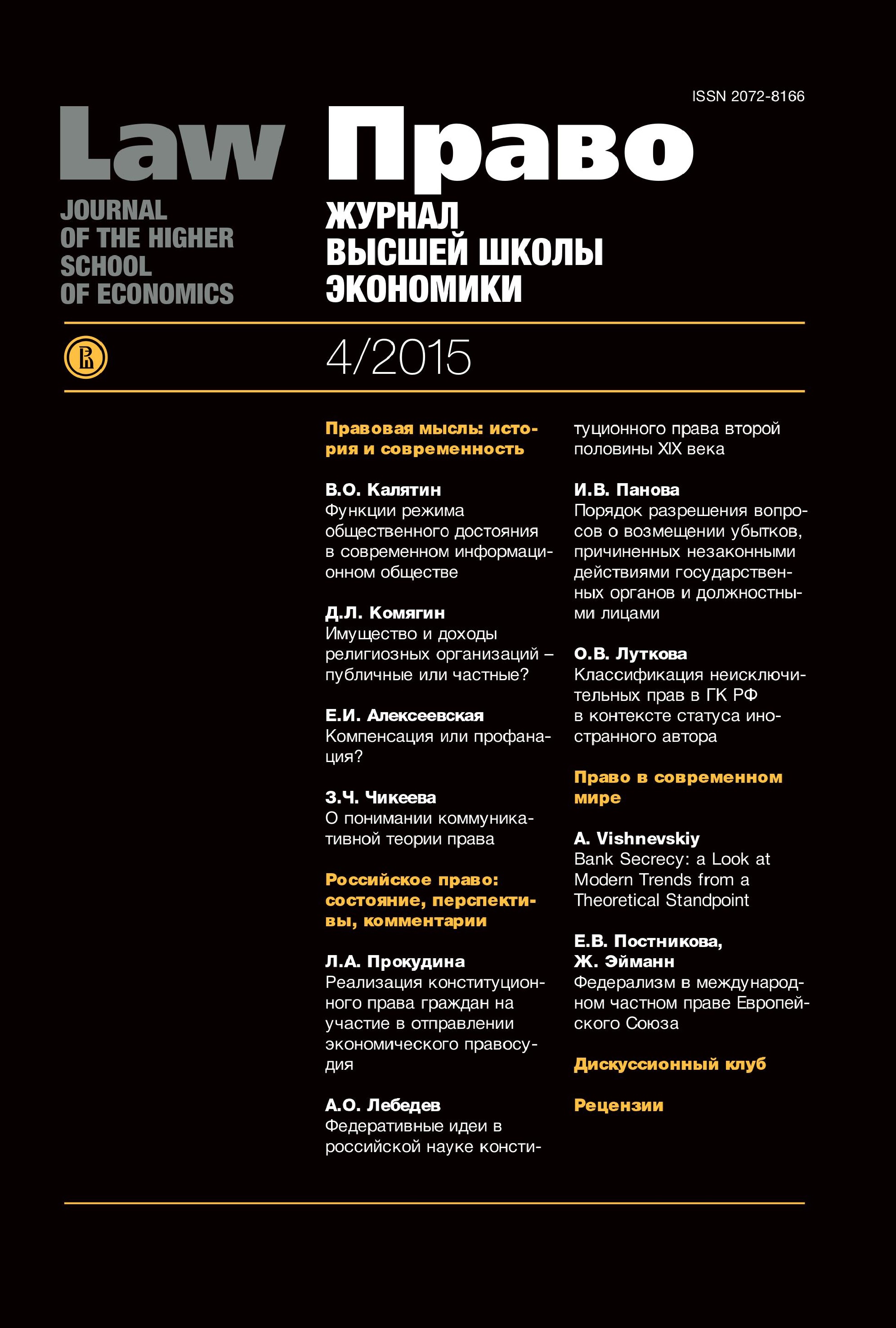Международная подсудность споров из договоров с участием потребителя
Аннотация
Бурное развитие технологий обуславливает углубление глобализационных процессов, в частности экстенсивный рост электронной коммерции, которая по определению имеет международный характер. Созданная Интернетом возможность приобретать дистанционным способом товары, отсутствующие на местном рынке, ведет к развитию трансграничной розничной торговли. С юридической точки зрения одной из основных проблем данного явления становится защита прав потребителей в трансграничном аспекте. Международное частное право предлагает потребителям защиту трех видов: процессуальную, коллизионную и материально-правовую. Первостепенное значение имеет решение вопроса о международной подсудности: суд какой страны правомочен рассматривать спор, вытекающий из трансграничного договора с участием потребителя? Особый статус потребителя как экономически более слабой стороны не позволяет обойтись общими нормами о подсудности. Право Европейского Союза, а также правопорядки многих стран других регионов планеты содержат специальные процессуальные нормы, которые на основе определенных принципов устанавливают юрисдикцию суда того или иного государства по рассмотрению споров из договоров с участием потребителя. В России подобное регулирование отсутствует. Таким образом, российская система защиты прав потребителя в трансграничном аспекте лишена важнейшего элемента. Для цели выработки рекомендаций по совершенствованию российского международного частного права в статье рассматривается содержание отдельных статей Регламента «Брюссель I» — основополагающего акта ЕС в сфере регулирования международной подсудности, а также исследованы доктринальные позиции зарубежных ученых. В статье сделан вывод о необходимости ограничения автономии воли сторон при установлении подсудности споров из договоров с участием потребителя. В основу решения юрисдикционного вопроса может быть положен, как и в европейском праве, критерий нацеленной деятельности, который способствует решению ряда спорных вопросов. В то же время данный критерий порождает новые теоретические и практические проблемы, которые к настоящему времени не нашли решения в доктрине и законодательстве, — это собственно определение «направленной деятельности», а также пределы «предпринимательской или профессиональной» деятельности, которые необходимо знать для установления статуса потребителя.


















